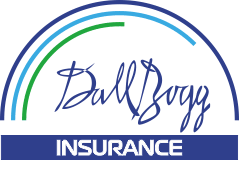13 Nov Insurance penetration in economy and financial security are like intravascular pressure – the perfect indicator of health and longevity

Tsvetomir Panagiurski – Member of Board of Directors
Please allow a personal question to start: your wife is a famous doctor. How do you balance work and family life?
Yes, I am very proud of her dedication and research passion. Central to both of us is caring for our family, to the extent that harmoniously combining our two all-consuming professions under one roof is possible and achievable… While they may seem very different at first glance, both medical care and insurance coverage are certainly critical to enabling us all to live safely and securely. A normal life requires standardized and legally guaranteed support for individuals, families and society, and from here, with even greater force, we live happy lives. In this sense, there is no room for opposition between the two great functions and ancient professions!
To find out more about your personal setting, tell us about a setback that is close to your heart.
There are no failures that lie ‘on my heart’! My setup is very optimistic and we mobilize in the face of difficulties. We have lots of plans and dreams, less worries! Sometimes it is exhausting to compete with the scale of large, accumulated with centuries of capital and organized structures. Recently, we tried to insure for another 30 years three musical instruments, each about 330 years old, made by Antonio Stradivari, which continue to be played at special events and concerts. The sum insured is mind boggling, but the risk is also accepted by first class reinsurers as being extremely low! Imagine – no surprise – we lost the bid! They even paid us a small compensation for the costs. We were left with the rewarding feeling that competitor companies, who by market capitalization and reserves could “buy” our little Bulgaria … were greatly surprised! We, a medium-to-small European, but “brave” Bulgarian company, proudly try to provide a stable profitability for the entitled in insurance.
In Bulgaria, insurance penetration outside compulsory insurance is very low. How would you comment, do you have any ideas?
So far, it is sad but a fact – the level of insurance penetration (IP) in Bulgaria is three times lower than the European average. There are very strong arguments and massive agreement among individuals and families, especially among disaster victims, and lip service from all politicians, that it is high time to introduce compulsory property insurance for real estate, or at least as a first step, for catastrophic risks, rather than seeking help from the state every time there is a flood or a tornado. History shows that no region affected by a natural disaster has been fully rebuilt in less than a decade with aid in this way. On the contrary, in Germany, as in many other developed countries with a high GI and a powerful reinsurance sector, floods or other natural disasters seem to have become ‘regular’ events, the effects of which are dealt with routinely and annually.
Financial security, inextricably linked to insurance penetration and the scale of its reach, are important components in the economies of developed countries. It is through the PP ratio (the ratio of gross premium income to gross domestic product) that we can safely and reliably measure the maturity of a society, the stability of its economy, and even its degree of cultural development. It is something of an indicator of resilience and longevity – an indicator of ‘intravascular pressure’, which is extremely important in medical diagnosis and helps prevent severe cardiovascular events.
Do these characteristics apply only to Bulgaria, or do they outline more global trends?
In general, the trends are general, but in our country the pace and scale, to put it encouragingly, retain considerable potential for development. The positive news is that we have recently seen growth in the insurance sector in Eastern Europe. This is due to several factors: new dynamics of economic activity, preserved and developing competitiveness with relatively low capital investment at relatively high interest rates in Europe, and a new, rising insurance and general insurance culture. The understanding of professional risk management is also improving. As the income of the population increases, so does the ability of individuals to insure themselves. In Bulgaria, however, BGN 73 billion is sitting in bank deposits at almost zero interest, and only 43% of it is granted as credit to citizens or companies. Against a very small fraction of this enormous “sleeping” resource, owners of apartments and other real estate can sleep soundly when meteorologists report impending storms and other cataclysms. Financial market development is also a central factor – more developed financial markets support the development of the insurance industry. If people and firms have easier access to financial products, including insurance, this naturally stimulates entrepreneurship, business initiative and comes back as a boost to the sector. Finally, a wider awareness of the benefits of standard risk management through insurance is also achieved with the development of information technology and education. People in Bulgaria and the region are becoming more aware of the main solution against their conscious and even undefined fears.
In this line of thought, please name five reasons why we should insure our property.
First and foremost – the potential, or as is increasingly evident – the actual danger of increased natural disasters. The examples around us are unfortunately many – the earthquakes in Turkey, the devastating floods in Bulgaria and Greece, unusual natural phenomena such as tornadoes and tornadoes in some areas of Bulgaria and damage in major cities, etc.
Secondly – when we insure our property, we guarantee our financial stability and provide peace of mind for the whole family and our loved ones. During and after a catastrophic event, the victim, even with savings, will need financial assistance to meet unforeseen needs, at the very least for property repairs. Interest rates on bank loans continue to rise and will remain high for a long time in Europe, and let us not talk about the enslaving fast loans!
Our home is our fortress – trivial but true. The little world we have been building for years in our homes is the most precious thing. It’s where we keep the memories, the important moments. That’s why we need to take care of this precious asset, not wait years for the state to return us to the “day before” the disaster. In reality, of course, this never happens because time does not go back. We insurers also only mitigate suffering – we are not magicians, but we are always first with care and dedication to insurance claimants!
It is not unimportant, and particularly pragmatic, that property insurance is financially viable and affordable, in the range of £10-15-20 per month. Instead, the benefits help to fully rebuild our homes when needed – with unknown speed and efficiency.
Last but not least, if we look beyond the individual perspective, the state is not obliged to take care of us as a newborn for life if we do not take care of ourselves first. The state cannot provide compensation in the amounts that an insurer can. Our industry is very powerful and has a number of tools and huge reserves, access to which begins with the conclusion of an insurance contract.
Yet, how to choose your insurer?
Choosing an insurance company is a serious decision that impacts our financial stability and security, and therefore our health and lives. At DallBogg, we strive to combine knowledge, experience and high professional ethics on the one hand, with a modern approach to developing new products and technologies. Applying innovations in the sector, we have developed online products and digital services at competitive prices. The goal is clear – excellent service, happy and relaxed customers.
Our results have been noticed – for yet another year the relatively new DallBogg: Life & Health has been ranked among the top 30 insurance companies in the South East (Top 100 SEE). The ranking covers more than 240 companies and the key criterion is the recorded gross premium income based on the unconsolidated income statements for 2020. Our steady progress receives a great acceleration from the daily adherence to the principle that “the customer always has the right to demand even more”!
